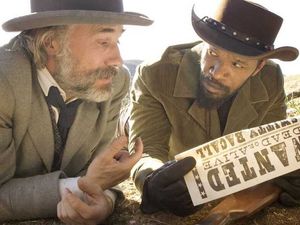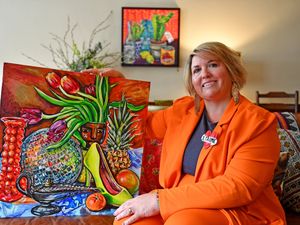Film Talk: Looking Back – Blood and bounty hunting with Django Unchained
He’s one of the most acclaimed and also controversial directors ever to have drawn breath, his work having consistently provoked debate in both the movie community and in the wider world.

He has never been scared of doing things his way, and through pictures that are often almost genre tributes, has addressed major societal issues from drug culture to sexual assault, and the legacy of genocide.
For two decades we had seen one of Hollywood’s cleverest screensmiths tackle harsh themes and brutal subject matter with a flair and intelligence that demanded attention.
In 2012, we would see him take on one of history’s most shameful stains, and in doing so create his finest flick to date.
Starring Jamie Foxx, Christoph Waltz and Leonardo DiCaprio, Quentin Tarantino’s Django Unchained would serve simultaneously as a revisionist tribute to Spaghetti Westerns and a window to the brutality of slavery in 1850s America.
Development of the film began in 2007 when Tarantino was writing a book on Italian filmmaker Sergio Corbucci – incidentally the director of 1966 Spaghetti Western, Django.
Casting began in the summer of 2011, with Will Smith reportedly considered for the titular role before Jamie Foxx was cast. Principal photography took place from November 2011 to the following March in California, Wyoming, and Louisiana, with the finished film finally hitting cinemas in December 2012.
The world was prepared for blood and brilliance (this was Tarantino after all) and it was not disappointed on either score...
In 1858 Texas, a black slave by the name of Django (Foxx) is liberated by German dentist-turned-bounty-hunter, Dr King Schultz (Waltz). Schultz needs the knowledge of the weary Django to identify a valuable bounty he is tracking, and grants him his freedom on the condition that he assist him.
On helping Schultz, Django develops a taste for bounty hunting, and agrees to partner up with the German sharp-shooter for the coming winter.
The two rack up an impressive number of hits, but it is not long before they discover the whereabouts of Django’s wife, Broomhilda (Kerry Washington), from whom he was separated after an escape attempt from his last owner.
Together, Schultz and Django concoct a plan to free his love, though neither of them are quite prepared for the sinister cruelty of Broomhilda’s new master – the charming yet psychotic Calvin Candie (DiCaprio) – and his malicious house servant, Stephen (Samuel L. Jackson).
With much more than a bounty at stake, the pair of gunslingers may have bitten off more than they can chew...
Grossing over $425 million worldwide against its $100 million budget, Django Unchained became Tarantino’s highest-grossing movie to date.
The film received numerous awards, with Tarantino himself garnering the Academy Award for Best Original Screenplay, and Christoph Waltz picking up both the Oscar and the BAFTA for Best Supporting Actor.
Django Unchained did not of course come without causing its fair share of controversy, with criticisms aimed at the film over its use of racially charged language as well as its presentation of slavery.
Yet by addressing the horror of slavery within a tribute to a classic film genre, Tarantino used pop culture to successfully lead his audience to think seriously about an important socio-political subject.
Intelligent and thought provoking while being action-packed and entertaining, Django Unchained is a masterpiece of cinema from a true sorcerer of the silver screen.
With outstanding performances from DiCaprio, Waltz and Jackson, along with a superb supporting turn from Miami Vice alumnus Don Johnson, the film showcases an array of talent that brings its director’s rich vision to life, and cements it as one of the greatest movies of the last 20 years.





